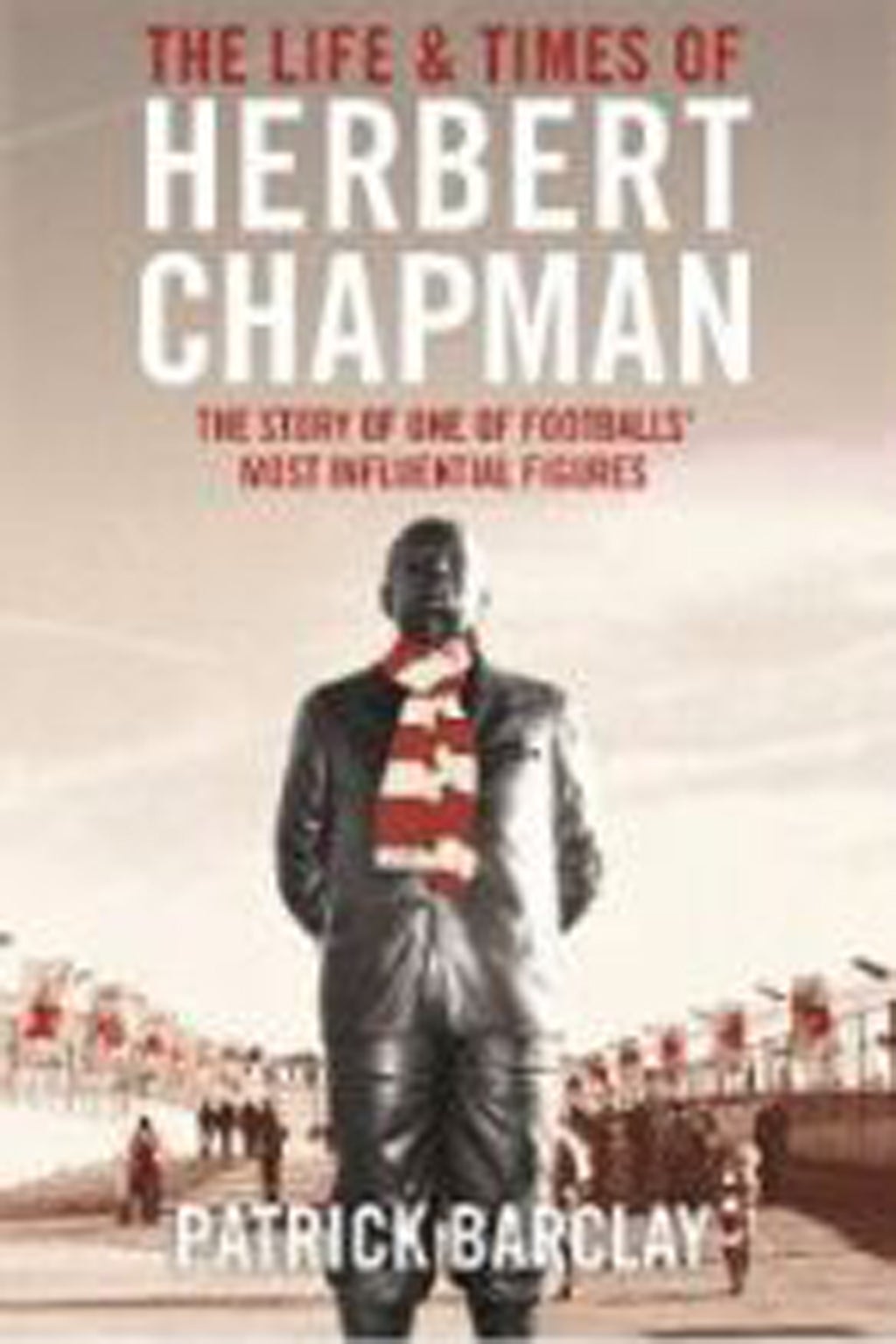Book of the week: The Life and Times of Herbert Chapman by Patrick Barclay

Is Herbert Chapman the greatest football manager this nation has seen? Patrick Barclay, while leaving the reader to decide for him(or her)self, mounts a very persuasive case for the Arsenal legend of the Twenties and Thirties who “scythed the path along which all British managers have walked”.
His management career started almost by accident. A journeyman League player, at nearly 30 in 1907 he was about to retire and make a career in engineering when a Spurs team-mate who had been appointed player/manager at Northampton changed his mind, telling Chapman: “You will have to take my place”.
He did, transforming the club’s fortunes over five years before moving to manage Leeds City. But in 1918 Leeds folded amid accusations of illicit player payments and he received a life ban from the FA. Yet this seems to have been quickly forgotten, as by 1921 he was managing Huddersfield Town.
There began his years of glory, as he led them to two League titles and an FA Cup win before moving to Arsenal four years later, where he repeated the feat before dying of pneumonia in 1934 aged only 55.
What made him so special? Barclay instances tactical genius, brilliant man-management, a keen eye for a player and the ability to impose an enduring structure on previously struggling outfits – both Huddersfield and Arsenal went on to win the League the season after his departure. He was also endlessly innovative: the first man to put numbers on shirts, a pioneer of artificial pitches and an early enthusiast of floodlights.
Anyone, Gooner or not, who gazes up at his statue standing in slightly paunchy, plus-foured glory in front of the Emirates stadium and desires to learn more about the Yorkshireman who first took Arsenal to the heights need look no further than this, surely definitive, biography.
Published in hardback by Weidenfeld & Nicolson, £20
Join our commenting forum
Join thought-provoking conversations, follow other Independent readers and see their replies
Comments
Bookmark popover
Removed from bookmarks